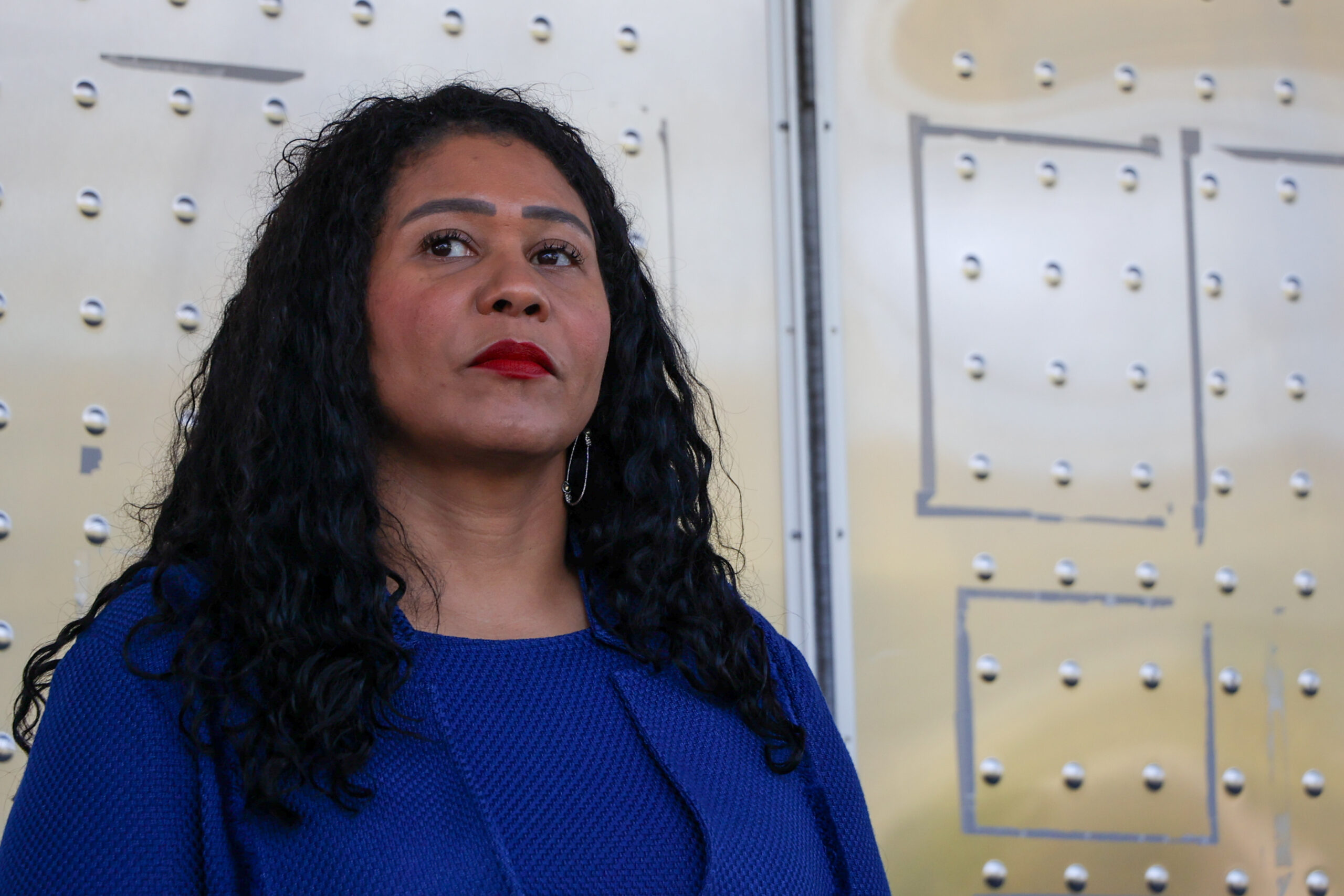Mayor London Breed has waded into the deepening fracas over Amazon’s expansion in the city, telling a room full of union leaders last month that she is supportive of their efforts to ensure the tech and retail giant creates labor jobs at a proposed San Francisco delivery center.
In December 2020, Amazon paid $200 million to buy a six-acre property at 900 Seventh St. from Recology, the trash-hauling monopoly linked to the corruption scandal at City Hall. If approved, construction of Amazon’s three-story, 725,000-square foot “last-mile delivery center” could take up to two years.
The mayor’s role in potentially helping to create Amazon’s first union-friendly shop in San Francisco would be a massive victory in organized labor’s struggle with Amazon—perhaps even bigger than the situation in Bessemer, Alabama, where workers at an Amazon warehouse will soon vote on whether to join a union for a second time. Federal regulators ruled the company illegally interfered in the first vote.
Although it’s not legal for San Francisco to mandate that Amazon recognize a union or hire only union workers as a condition of approval, the city could impose certain labor-friendly conditions.
For example, the city could potentially require certain union-friendly rules such as a project-labor agreement for any construction jobs during build-out, as well as a “labor peace agreement” for Amazon’s future workers, said Ken Jacobs, chair of UC Berkeley’s Center for Labor Research and Education. Labor peace agreements, also known as LPAs for short, are pacts between a company and a union to allow certain organizing activities. If Amazon agrees to an LPA in San Francisco, it would be the first Amazon LPA in the United States.
“The city can do a lot to regulate labor standards, and to set strong conditions that ensure the city has good employers that are benefiting the city and benefiting workers,” Jacobs said. The city “can and should be exploring how to make sure the jobs that are created are good quality jobs, especially when Amazon warehouses are notorious for their working conditions.”
Jacobs added, “What happens in San Francisco will be watched closely elsewhere in the country.”
Amazon plans to hire up to 500 workers at a starting hourly wage of $17.25, the company said at a virtual town hall in November. While adding hundreds of jobs is almost always considered a political victory, the proposed pay is less than dollar above the city’s minimum wage and falls far short of what’s needed to survive in San Francisco— the "living wage" for a single person in the city is $28 per hour, according to the MIT Living Wage Calculator.
Both the mayor’s office and Teamsters Joint Council 7 officials confirmed the Feb. 17 meeting, as well as the subjects discussed.
Jeff Cretan, the mayor’s spokesperson, confirmed in an email that Breed met with organized labor and “is working to support their broad goals of labor jobs and strong community benefits, but there have been no commitments on specific policies or outcomes.”
After months of silence on Amazon—and no direct talks between the mayor’s office and organized labor, even as the company rapidly expanded in San Francisco during the pandemic—the mayor’s message of support for labor's campaign to organize Amazon amounts to her first known position on the issue.
“Teamster leaders had a good conversation with Mayor Breed and her staff about the need for good union jobs and strong community benefits in San Francisco’s Amazon project,” said Jason Rabinowitz, the president of Teamsters Joint Council 7, which represents 100,000 workers in over 20 locals in Northern California and Nevada, mostly in the private sector.
“While no specific commitments about the project were made, the Mayor listened, stated that she supports these goals, and committed to work collaboratively with Labor in the months ahead to attain them,” Rabinowitz added in a statement. “We look forward to continuing to work with the Mayor's office to ensure that the Amazon project benefits our city, our economy, and our communities.”
Breed’s connections with the Teamsters are personal. Breed’s uncle, Chuck Davis, was a Teamster and he helped send Breed to college.
“The mayor grew up recognizing the importance of unions,” Teamsters officials said in their 2019 endorsement of Breed’s re-election.
A spokesperson for Amazon declined to comment.
In September, Amazon and the city’s Office of Economic and Workforce Development quietly inked a negotiation agreement, the presence of which was first reported last month by The Standard.
News of the deal surprised most supervisors and sparked questions about City Hall’s attitude towards the company.
Revelations that Amazon seemed to enjoy better access to city staffers than labor compelled Board of Supervisors President Shamann Walton to introduce legislation that would put a moratorium on new Amazon facilities in the city pending future regulation.
Walton, who has butted heads with the mayor, demurred when asked for comment on Breed’s summit with the Teamsters. “I don’t typically comment on meetings I don’t attend,” he said. “I will say it is great that we are all on the same page!”
The mega-retailer already operates several distribution hubs: 749 Toland St. in Bayview, and 435 23rd St., and 888 Tennessee St. in the Dogpatch. The company is currently negotiating with the city to build at the Seventh Street site where Mission Creek meets Potrero Hill.
Amazon has gone to great lengths to crush worker organizing across the United States.
Organizing Amazon workers is a “top priority” for the Teamsters union, according to a resolution passed at the Teamsters’ June 2021 convention. But it’s not entirely clear how City Hall could aid organized labor in its countrywide struggle against Amazon, which the Teamsters officially declared “an existential threat” to worker rights.
Amazon’s Potrero site is pending approval from the city’s Planning Department, and it could face challenges from the Board of Supervisors as well as the courts. The project still needs a “community benefits agreement,” which could include requirements to build housing or pay for parks or other amenities.
